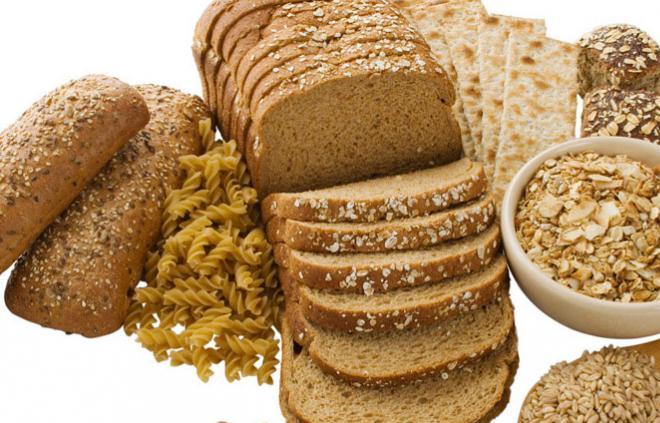 If you are of a certain age, you remember eating white Wonder bread as a kid. Kids liked that soft squishy bread that Mom piled high with peanut butter and jelly. Back in the 60s, the catch phrase for white Wonder Bread was “Wonder helps build strong bodies 12 ways” because this bread was chock full of nutrients. Through the years, Wonder Bread has added to their product line, so, in addition to the classic white bread, you can now get the same texture of bread but in whole grain. Mom is doubly happy to serve it to the kids and it still has that same moist texture that kids loved.
If you are of a certain age, you remember eating white Wonder bread as a kid. Kids liked that soft squishy bread that Mom piled high with peanut butter and jelly. Back in the 60s, the catch phrase for white Wonder Bread was “Wonder helps build strong bodies 12 ways” because this bread was chock full of nutrients. Through the years, Wonder Bread has added to their product line, so, in addition to the classic white bread, you can now get the same texture of bread but in whole grain. Mom is doubly happy to serve it to the kids and it still has that same moist texture that kids loved.
White bread is going away
Nutritionists have been stress that “eating white” is not healthy for you, “white” being products with refined carbohydrates like white bread, carb-laden baked goods, white rice or white-flour pasta and most sugary breakfast cereals.
Most of us have expanded our horizons past the plain white sandwich bread, it sure is difficult not to snatch up a crispy baguette or boule peeking out of its wrapper as their delicious smells waft into the bakery area at the grocery store. Equally difficult to resist are the warm rolls or breadsticks brought by your server to the dinner table. As you savor that delicious roll, perhaps you have forgotten why nutritionists are touting whole grain products and suggesting you forsake “white” forever.
White bread is a no-no
White bread may be tasty, in the process of making flour for white bread, the outermost and innermost layers of the grain are removed; these layers contain fiber and protein, both that are essential in our diet. Unfortunately, all that remains is the starch. Whole grain bread has fiber and protein which provides a nutritional boost to meals and slows digestion. Because white bread lacks these essential qualities, it is digested and absorbed quickly, creating erratic blood-sugar levels which results in irritability and hunger.
Increased risk of type-2 diabetes – A diet where one regularly consumes white bread or refined carbs, causes repeated blood sugar spikes, and cells finally become more insulin resistant, leading to the risk of type 2 diabetes.
Weight gain. – Surplus sugar in your bloodstream not only causes spikes of energy, or the risk of type 2 diabetes, but, since it has no nutritional value, you’ll will not feel satiated and hunger pangs as well as fatigue, and even symptoms of depression.
Whole grain products will keep you in good health
#1 – Whole grain products are more nutritious than “white” products. As mentioned earlier in this post, whole grains are very beneficial for you because they are nutritious, not only because of their fiber and protein content, but because their vitamins, minerals and phytochemicals will improve your health. Since the wheat bran and wheat germ have not been stripped away, you will reap the benefits of the whole grain, like:
- Trace minerals like iron, zinc, copper, and magnesium;
- B vitamins; and
- Antioxidants
Nutrient-rich whole grains have been shown to reduce the risk of heart disease, type 2 diabetes, obesity and even some forms of cancer!
Multi-grain or wheat breads lack the nutritional value that whole-grain breads have, don’t assume that just because bread or rolls are brown colored, that they are healthy for you. Inspect labels and buy whole-grain products only.
#2 –They are fabulous for fiber intake. Most adults do not eat enough of the recommended fiber intake – 25 to 35 grams daily. Whole grains are packed with both soluble and insoluble fiber, both which are beneficial to your health. For example, two slices of whole-grain dark rye bread will yield 5.8 grams of fiber, while two slices of white bread is a measly 1.9 grams of fiber. Similarly, a ½ cup of uncooked brown rice contains 5.5 grams of fiber, whereas the same portion of uncooked white rice is only 2 grams. Because fiber digests slowly, you’ll feel full longer, combat blood sugar spikes and lower your LDL or “bad cholesterol” thus thwarting risks of colon cancer or other intestinal woes like diverticulosis.
#3 – They leave you feeling satisfied and without having the “munchies”, and, some whole grains pack a punch more than others. For example, try rye or protein-packed quinoa to get maximum fullness.

#4 – They keep your metabolism humming. A breakfast of whole-grain cereal (hot or cold) will keep you full and able to take on the day.
#5 – They are rich in Vitamin B which is helpful if you are pregnant. The B vitamin folate (folic acid) helps the body form red blood cells which is critical for preventing birth defects in babies.
#6 – They keep your immune system in good working order as they contain zinc, making them an excellent choice during cold and flu season.
#7 – They reduce asthma risk and asthmatic wheezing. This is important for allergy suffers as well.
#8 – Combining whole grains with a generous diet of fruits and veggies may lower the risk of colorectal, breast, and pancreatic cancer. Do you need any more reasons to consume whole grains?



